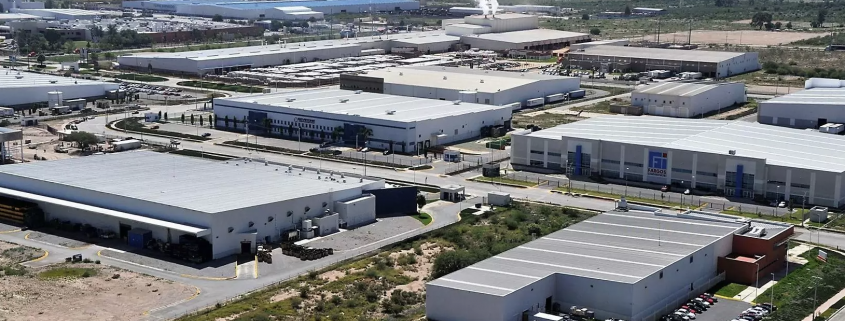Earlier this month I was able to step out of the centralizing gravitational pull of Mexico City and travel to San Luis Potosí to attend an event organized by El Gran Bajío, a private sector-led investment promotion initiative that is just getting off the ground. I was pleasantly inspired, and let’s face it, inspiration is in short supply these days. The world faces multiple challenges and instead of returning to normalcy, we are collectively coming to the realization that we must adjust to permanently altered circumstances that include climate conditions, polarizing politics, and unrelenting technological advancement.
Mexico, like all countries, competes for investment and capital globally and the conditions that create competitiveness are not a mystery. Companies and investors need to reduce risk and optimize returns. Being next to the lucrative US market and having decades of experience as a major trading partner in North America gives Mexico a leg-up on the competition. The country stands to gain from nearshoring as companies reassess the China risk, but investment will not come without active promotion efforts, particularly given Mexico’s current challenges with respect to security and available low-carbon energy.
With the elimination of ProMexico – Mexico’s former publicly funded investment promotion body – coordinated efforts have lost force. But necessity being the mother of invention implies that this may not necessarily be a bad thing if Mexican businesspeople can devise the means and raise the funds to do the work of promotion themselves. From this springs the idea of the private sectors of states in the Bajío working together and finding strength in unity instead of conducting isolated efforts in competition.
El Gran Bajío brings together businesspeople in Aguascalientes, Guanajuato, Michoacán, Querétaro, San Luis, and Zacatecas (together these states represent 26% of Mexican GDP) under one branded concept and in harmony with local and state governments. Note that this is not political, but practical, much like the spirit of the entrepreneurs that live in the Bajío. Happily, both Forbes and HSBC have decided to become involved in supporting the effort, which will no doubt encourage even more interest domestically and internationally.
El Gran Bajío hopes to also serve as a modernizing regional force that can assist companies to up their game with respect to new trends in ESG (Environment, Social and Governance). ESG considerations are now a central component to the analysis of the risks and rewards of any investment, and this is particularly important given that many of the leading companies in the region are family-owned and need to ensure their viability for the next generation. Putting in place governance plans that address environmental sustainability, gender diversity and transparency will be critical to establishing partnerships with counterparts abroad and to increasing the competitiveness of the Bajío region generally.
The Bajío is not starting from scratch and has had historical success in attracting domestic and foreign investment in the aerospace, automotive, and agricultural sectors, to name a few. Building on this foundation and moving beyond it by promoting innovation and entrepreneurship will be buttressed by the creation of an ecosystem that includes regional academic institutions, such as the Arkansas State University campus and Querétaro’s aerospace university (UNAQ). Further, a new cluster of data centers is under development in the region, spearheaded by companies like Microsoft, Cloud and ODATA.
It is comforting to see new initiatives surfacing at such a difficult moment globally where many countries and companies are analyzing what comes next. Laying the foundation today for success in the medium and long term is critical to ensuring sustainable prosperity in Mexico, a goal that goes well beyond any political cycle and will require the active participation of the private sector.



